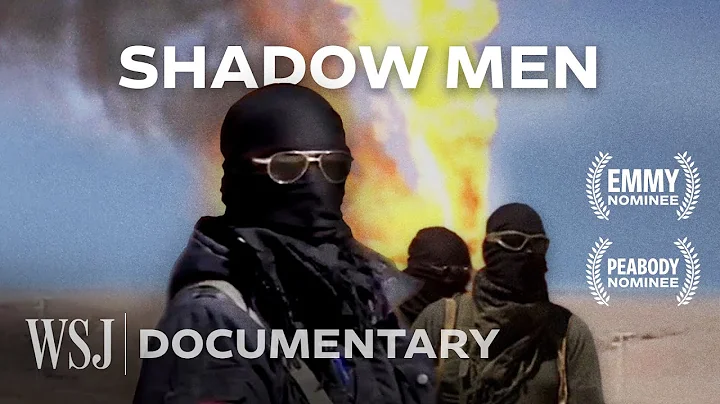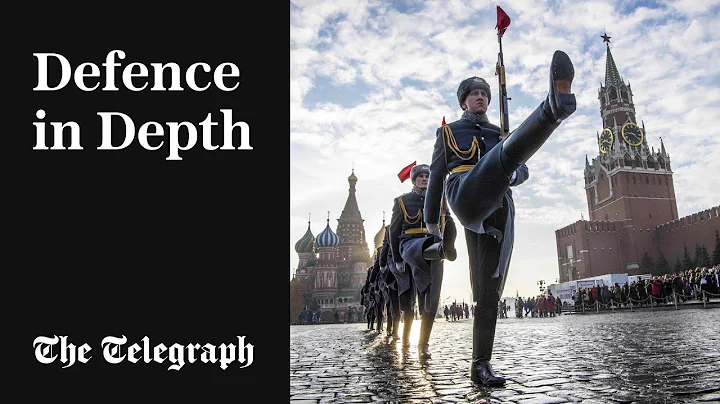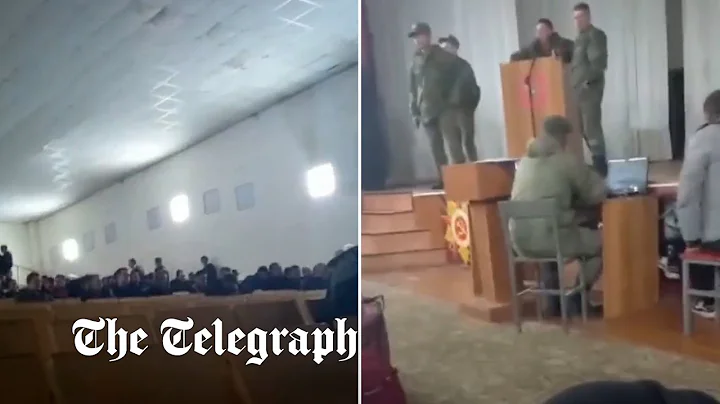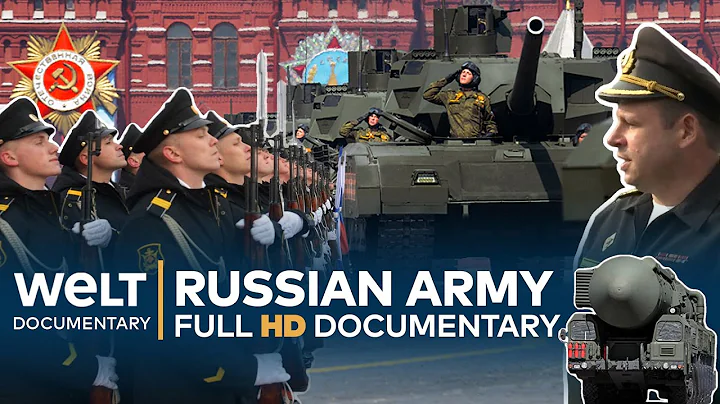
Yevgeny Prigozhin
In 2010, Russian military leaders reportedly came up with the idea of creating mercenary groups that they could control. To this end, the Joint Staff hired catering oligarch Evgeny Prigozhin to manage operations using funds obtained from lucrative government contracts to provide food for the armed forces. The Wagner Corps was located in Krasnodar , close to the 10th Brigade of the Main Intelligence Agency.
Sources close to the company told Russian media that the Wagner Group is still completely dependent on the military’s infrastructure and equipment, but it has established an independent recruitment network.
Prigozin met Putin at the high-end restaurant he opened, and became the person in charge of Putin's catering and the royal restaurant, and made a fortune from it. Since then, he has also met many celebrities and dignitaries. Through operating Wagner, he met many world leaders, was wanted by the United States, and met with the leaders of Chechnya. At home, he also gradually gained political influence.

Prigozhin gradually fell out of favor
Before the war broke out, in order to more directly regulate the mercenary groups, the Ministry of Defense took control of the online network that Wagner used to advertise and recruit vacancies, saying, "We need your brand because it "It's very famous, but we have to recruit people ourselves, but we have to use your brand." A person close to the company's management told Russian media that the military had lowered its recruitment standards: "They even hired without physical testing. .”
In fact, the mercenaries of the Wagner Group did not arrive at the front lines of Ukraine until late March 2022. Before the war, while Russia was still preparing for war, Yevgeny Prigozhin's political influence was being undermined at home. Multiple sources told Russian media that he may lose the favor of the presidential palace and the Russian Defense Ministry.
Christo Grozev, executive director of the investigative media Bellingcat, said that on the eve of February 24, Prigozhin “attempted to contact the (General Staff) without success and only succeeded after the war started. Another source familiar with the matter told Russian media that Prigozin refused to mobilize his mercenaries for the Ukrainian battlefield without a direct order from President Putin before the war began in February.

St. Petersburg Mayor Beglov was complained by citizens for his poor handling of snow, garbage, etc.
According to two sources close to the Kremlin and two other sources with connections to Prigozhin, Prigozhin Tianjin disapproves of domestic policy minister Sergey Kiriyenko, especially Kiriyenko supports St. Petersburg Mayor Alexander Beglov on this point. The dispute between Prigozhin and Beglov came into public view last winter when Prigozhin began publicly criticizing the St. Petersburg regional government for its failure to clear snow and garbage. Prigozhin allegedly even hired Leningrad band leader Sergey Shnurov to write and perform a new song mocking the mayor.
The conflict involves money and politics, from a lucrative state contract to renovate the historic stables on Koyushennaya Square to voting rights for Prigozhin's preferred candidate for the local legislative assembly in 2021.
Despite the current sensitive period of confirmation of war in Ukraine, oligarch Prigozin has not backed down.In an interview with a media outlet he controlled on July 5, 2022, Prigozhin called Beglov a "tyrant mayor" who "doesn't want to accomplish anything." Prigozhin's main complaint these days is over the state contract to develop the Gorskaya tourist area on the Gulf of Finland. Last year, a company affiliated with Prigozhin signed an agreement with St. Petersburg authorities to complete the project, but officials ultimately hired a company linked to Gazprom, denying Prigozhin permission to stay in the tourist zone. Plans to build a manufacturing plant.
According to previous media reports, Prigozin also quarreled with Defense Minister Sergey Shoigu, accusing his office of using ineffective "outdated methods" in the Syrian war. At the same time, Shoigu was dissatisfied with Prigozhin's catering services, which is apparently why Prigozhin has lost many military contracts in recent years.

Defense Minister Sergei Shoigu
In February 2018, Prigozin angered the Russian military high command with his reckless operations in Syria. At that time, when the Wagner Group privately attacked a natural gas processing plant in Deir ez-Zor, Syria, it triggered a violent counterattack from the United States, resulting in the deaths of dozens of Russian mercenaries. Bell's reporters later learned that Wagner Group acted without notifying the Department of Defense and struck a backroom deal with the Assad regime that gave Wagner exclusive access to oil produced at "liberated" facilities in the region. and a quarter of all natural gas revenues.
Redoubt mercenaries were in a difficult position
In the early weeks of the Russo-Ukrainian war, most of the Russian mercenaries fighting in Ukraine were not Wagners, but came from a private military company called "Redoubt". Five sources confirmed to Russian media that hundreds of the organization's fighters were deployed in different units, with codenames including "Rogue," "Wolf" and "Axe."
These troops were formed and dispatched to Ukraine at breakneck speed. To fill the vacancies, Fortress recruited former soldiers and officers who had been blacklisted for various reasons over the years, who had failed interviews or been fired in previous recruitments.
One of the new recruits is Ivan Mikheev, a disgraced former squadron leader but this time given a new command in Fortress Company. In the first days of the war, Mikheyev's squad entered Ukraine through Belarus and headed for Kiev . Almost immediately, however, the mercenaries came under friendly fire. According to other mercenaries, Mikheyev was injured and transferred back to Russia, where he died on the operating table three weeks later "due to thrombosis ." The Donbas Volunteer Union and some friends shared the obituary on social media. He was buried on March 28.
Fortress military company still has a large number of combatants in Ukraine, under the full control of the Russian Defense Ministry, according to four sources, including one of Fortress's own former commanders. The group's headquarters is located in the town of Kubinka outside Moscow, adjacent to the 45th Airborne Brigade base. Veterans and multiple active-duty mercenaries who served at the base told Russian media that soldiers from the brigade are responsible for managing private military companies.

"All I have left is myself and my AK-47"
When heavy losses on the battlefield incapacitated the fortress, the Russian Ministry of Defense regrouped the group at the Kubinka base. This time, the military invited combatants to sign short-term contracts to formally serve in the armed forces. However, these mercenaries were obviously dissatisfied with the Russian army. One of the mercenaries believed that absorbing people from the fortress into the army would not be helpful.
They believe that, although many combatants voluntarily sign contracts, working directly for the Ministry of Defense does not ensure greater efficiency. Several recruited mercenaries complained to Russian media that the Ministry of Defense did not even pay salaries and bonuses as promised (or sometimes not at all)."I want to get back the money I'm owed, and now I'm just a wretch with no rights! All I have left is myself and my AK-47," In this case, the want-fortress mercenary worked hard to seize for Russia Victory looks unrealistic.
A senior mercenary at the fortress directly expressed his dissatisfaction with Russia's regular performance, saying that the commander was just a fool with a star on his shoulder. He told the Russian media that while in Ukraine, he was shocked by the dilapidated state of the Russian regular army and the heavy losses suffered in the battle. He felt sorry for the 18-year-olds who trusted their country and their commanders and signed the contract. He said young soldiers were shocked to see professional mercenaries advancing in battle without inflicting serious losses. "As a branch of the army, the airborne troops no longer exist. There are only a dozen people left in the entire company. You know, a company should have 100 people."
Fortress mercenaries also described how Ukrainian artillery destroyed a unit on May 11. A tactical brigade. When the Russian 35th Guards Motorized Rifle Brigade tried to cross the Seversky Donets River in the Luhansk region, rows of infantry fighting vehicles caught fire. The operator was burned alive. The tank was abandoned on the damaged pontoon. Soldiers Escape into the water. As a result, he said, Russia lost the opportunity to encircle nearly 15,000 Ukrainian troops in Lysichansk and West Verdonetsk, but the troops eventually captured those cities after Ukrainian troops successfully retreated.

Although the Bastion mercenaries mercilessly complained about the regular army, in reality their performance was not much better.
Fortress also suffered heavy losses in Ukraine. A mercenary of the company told Russian media that his team successfully occupied and controlled a town on the outskirts of Kiev early in the war, but encountered fierce resistance in the Donetsk region when trying to cut off Ukraine's supply lines. "They pushed us back there," he said. "Our losses, it was just crazy. What they showed on TV... If that had been reality, we would have captured Poland, let alone Kiev." !”
Wagner is out and riding again
On April 16, 2022, State Duma deputy and outspoken conservative Vitaly Milonov posted a photo together with Prigozhin. Wearing camouflage uniforms and smiling, the two posed in front of a school in Pervomaisk, Lugansk region, Ukraine. Just a few miles to the east, Prigozhin's mercenaries were struggling to capture Popasna. Two months later, Wagner made his biggest breakthrough of the battle, successfully capturing the town. It was the key to the Russian army's retreat in Donbas.

Wagner members
This spring, perhaps in response to the dismal combat performance of Russian forces and "blacklisted" fighters, the Defense Department ordered the Wagner Group to redeploy to Ukraine some of its "core teams" that were operating in Africa, Syria and Libya work.
But a source who knows several of them said some "Wagner professionals" traveled to Ukraine purely for spiritual strength. Because many of the mercenaries of the Wagner Company are of Ukrainian descent. "They come from Lischichansk, Popasna, Slavyansk," he explained. "They came to crush Ukraine to avenge their compatriots who were killed in the civil war in Donbas in 2014.
Today, the Russian army uses combatants of the Wagner Group as its main strike force in Ukraine, "renting" mercenaries to the front line Troops. As a result, many of Wagner's troops in Ukraine were killed or wounded. For example, one Wagner squad leader ordered his men to go into battle without artillery or air cover. Three sources confirmed to Russian media that this was the result. The squad leader soon died, but it is unclear whether he died mysteriously after returning to Russia or was executed on the battlefield by his own soldiers under the "Laws of War").
However, the military's failure to equip Wagner's mercenaries with appropriate supplies also exacerbated losses on the battlefield. For example, an acquaintance told Russian media that the combatants sent to capture Popasna were equipped with only minimal ammunition. "Four bullets to a man! If I had not experienced something like this myself, I would never have believed it," he said
Despite these struggles, it was clear that Wagner's capture of Popasna greatly improved Prigozhin status in the eyes of the Russian authorities. Two weeks later, a state television reporter mentioned Wagner on a national broadcast and made a rare public admission: "You can always find them where the fighting is fierce, but they are always so mysterious."

Popasna's Occupation forces Ukrainian troops into full retreat, sealing Russian victory in Luhansk
Although the Russian military once again turns to Yevgeny Prigozhin's elite mercenaries, the oligarch's true feelings about his role in the war remain unclear Feelings are still unclear. An acquaintance in St. Petersburg told Russian media that Prigozin actually considered himself a warlord, but another colleague insisted that he was more concerned about maintaining employment contracts and commitments to Syria and Africa given by the Ministry of Defense.
Whatever his motives, Prigozhin has apparently received the Gold Star Medal and the honorary title of Hero of Russia for bringing his men to the front lines in Ukraine. Two sources close to the presidential palace told Russian media that the awards were awarded after the Wagner Group proved that it can seal the situation in the Luhansk region.
As a result of Wagner's achievements in Ukraine, Prigozhin's favor with Putin is now soaring and the restaurant magnate is now in the president's wartime "inner circle," two sources said.
Follow Eleven, discover current hot topics with you, and chat about all kinds of things.





















